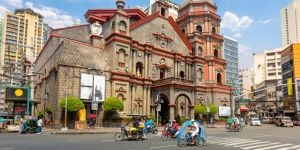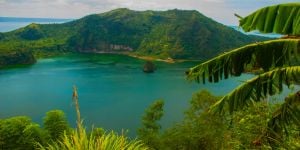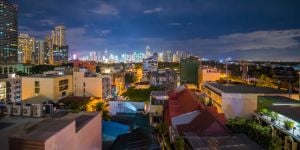If you are a intending to become a permament resident here in the Philippines you will certainly need a local bank, ATM card or whatever. If there is a branch of a Filipino bank in your home country you can apply to open an acount before you leave. To satisfy the moneylaundering regulations you will be required to provide the usual proof of address and relevant personal ID before an account can be opened. But once this has been done making transfers within the bank you have chosen should be very straightforward.
Over the past decade, natural disaster risks seem to have been increasing all around the world with millions of people being affected. You probably remember the Indian Ocean tsunami in December 2004 where over 250,000 lost their lives, Hurricane Katrina that hit the New Orleans in 2005 and the deadly Haiti earthquake in 2010. Truly speaking, natural disasters can occur anytime and anywhere – and there isn't a country in the world that is free from the risk. However, many reports include the US, China, India, Thailand, the Philippines, Indonesia, Japan, and Vietnam as the higher risk countries. Some European countries, such as Greece which has just been shaken by a Mediterranean earthquake, Romania, Serbia and Albania are also prone to natural disasters.
Japan
Japan is no doubt a top destination for foreign professionals from all around the world. But did you know that it is deemed to be one of the most high-risk countries in Asia? Nicknamed the Land of the Rising Sun, Japan is in a highly seismic zone alongside several tectonic plates. Earthquakes can thus be felt almost every day, throughout the country. Over the past years deaths have been reported, but overall Japan is well-prepared to prevent big damages. It's been a decade that stirct specifications and high safety standards have been set, so most contructions are following the security rules. Japan is also prone to floods and typhoons with strong winds that can go beyond 110 km/h. Tsunamis remain a perpetual risk in Japan.
Vietnam
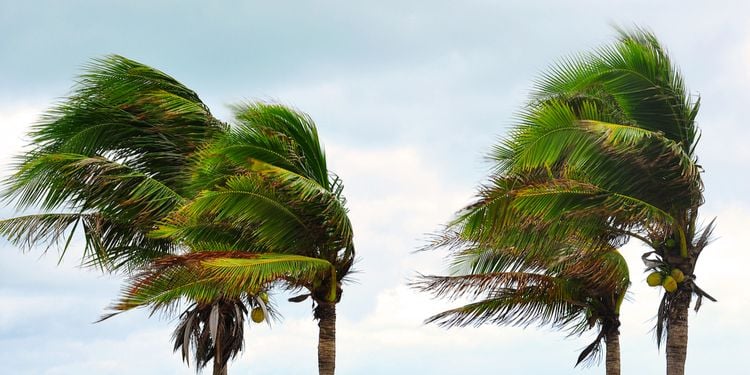
Like many neighbouring countries, Vietnam has not been spared by natural disasters. Even though, it remains a top expat destination, especially for retirees, climate change has deeply affected Vietnam, giving rise to severe droughts and sometimes floods and landslides. The typhoon season goes from June to December and has often proved to be destructive. It's worth noting that Hanoi and surrounding cities and villages are particularly vulnerable due to being so close to the Mekong Delta.
Mauritius
Known as the Pearl of the Indian Ocean, Mauritius is another top expat destination thanks to its tropical climate with sunny days almost all year round, not to mention its beautiful beaches and natural landscapes. Nevertheless, Mauritius has also had its share of dark days. Remember that Mauritius is a volcanic island, even if its volcanoes are said to be dormant, unlike many other countries. The island is also vulnerable to other natural disasters such as floods, with the most recent events occurring in 2013. Coastal areas are also prone to risks of tidal waves. From November to May, you can expect cyclones with risks of flooding and landslides. Involving various stakeholders, the country was compelled to set up a National Disaster Risk Reduction and Management Center that stays alert in case of emergency.
Costa Rica
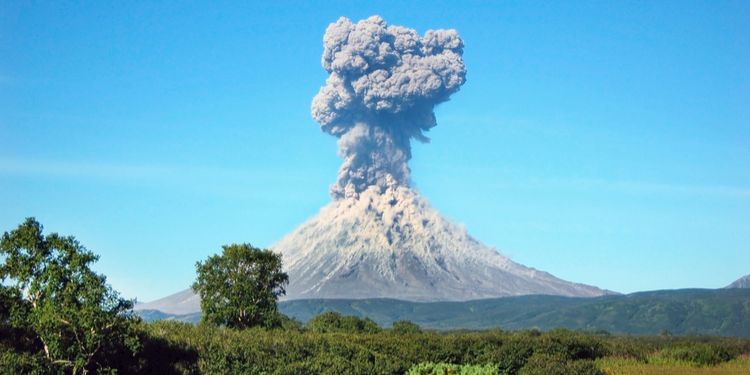
If you consider moving to Costa Rica, you should be expecting to enjoy a greater quality of life, but you should also be aware of the possibility to experience national disasters such as earthquakes. Risks of tsunamis also exist as Costa Rica is within a high-risk zone. The country is home to many active and potentially active volcanoes such as the Turrialba in the province of Cartago. The capital city of San Jose and neighbouring areas are often affected by volcanic ashes that often disrupt domestic and international flights. Some 30 kilometres away from San Jose, the Poás has been quite active since March 2017. Costa Rica also experiences hurricanes, some of which are highly dangerous, from June to November. From May to November, the rainy season often causes floods and landslides. Fortunately, all these risks are closely monitored by the National Hurricane Center and the National Commission for Risk Prevention and Emergency Management.
Chile
Like Costa Rica, Chile is also found in a high-risk region with earthquakes occurring almost on a daily basis and risk of tsunamis. You must be willing to adapt to everyday life with this phenomena, if you have decided to move to Chile. In autumn and winter, from May to August, torrential rains bring risks of flooding due to congested sewage systems. Of course, in such events, public transport and services are disrupted as well. In early 2017 a dozen of forest fires destroyed many regions, compelling the government to proclaim a state of emergency.
What you should do
Before moving abroad, remember to seek all relevant information so you can be prepared for any of the above-mentioned risks. In the unlikely case of emergency, pay particular attention to the latest news broadcast on TV and the radio and feel free to seek help from your embassy or the nearest consulate. And if you're planning to explore your new home, make sure to keep an eye on weather forecasts or any other alert, just in case!
We do our best to provide accurate and up to date information. However, if you have noticed any inaccuracies in this article, please let us know in the comments section below.


